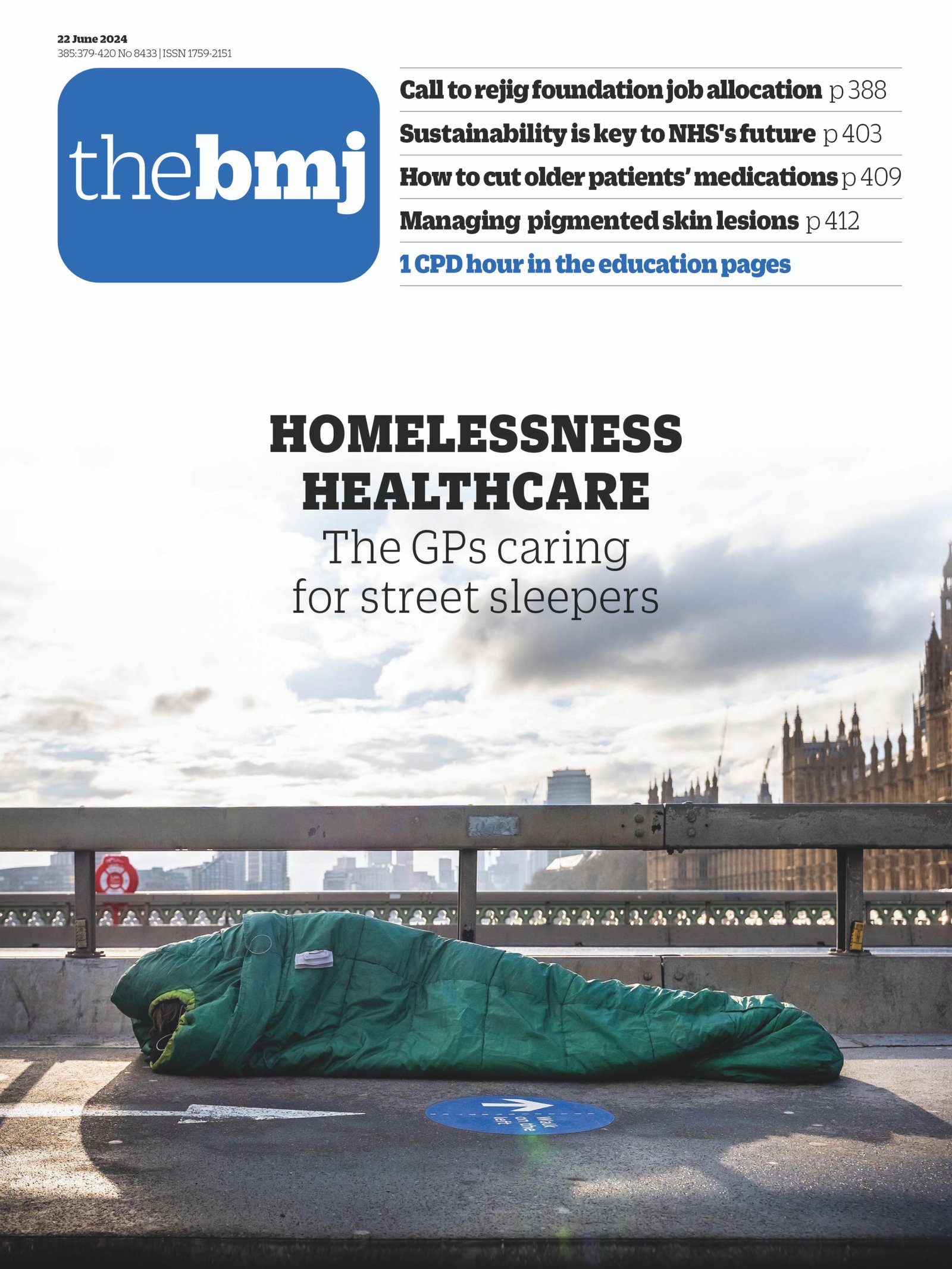How do you move from activism to action, from words on a page to improving people’s lives? I recently asked a former national chief medical officer about his greatest regret in office. This is a doctor committed to investing in health and wellbeing as a long term strategy for better prosperity and health outcomes. The answer was unequivocal: I’d stand for parliament, he said.
That simple statement captured much of the frustration of health professionals. They see the answers to a health service’s woes, they throw themselves into activism and lobbying, they contribute to manifestos, statements, and open letters (doi:10.1136/bmj.q1361), and they even vent in medical journals about prevention (doi:10.1136/bmj.q1388) and social care (doi:10.1136/bmj.q1386), but making change happen is a political process.[1-3] At least 31 doctors seek to take the step from clinician to politician in the UK’s general election on 4 July (doi:10.1136/bmj.q1357).[4]
The range of aspiring politicians covers the leading political parties, with the notable exception of the anti-immigration party Reform, and they come from diverse specialties. Anna Fryer, a psychiatrist, quotes the German physician and politician Rudolf Virchow: “Politics is nothing but medicine at a larger scale.” David Nicholl, a neurologist, believes that the country is broken and needs adults “in the room.” Philippa Whitford, a breast surgeon and retiring politician, reflects that doctors are “trying to bail out a boat that has a hole in it.” Some candidates are focusing on climate change, while most are emphasising their credentials on health and counting on the public support that this brings.

The manifestos of the leading parties all talk big on health with promises of investment—a tacit acceptance of the national health emergency—but they vary in their level of detail and ambition (doi:10.1136/bmj.q1358).[5] Some major issues, such as the rising prevalence of obesity and cardiovascular diseases (doi:10.1136/bmj.q1378 doi:10.1136/bmj-2023-078523),[6] [7] are given cursory attention or ignored. The best plans often come from the political party least likely to be in a position to deliver them.
Take the resurgence of whooping cough in the UK, and you quickly grasp how a chronic erosion of public health results in a crisis that can be fixed only with a multisectoral, science based, and sociopolitical solution (doi:10.1136/bmj.q1289).[8] Pertussis vaccine coverage fell to 36% in London at the end of 2023.
Words and advocacy are cheap. The best advocacy is backed by evidence (doi:10.1136/bmj.q1356 doi:10.1136/bmj.q1387),[9] [10] and a hazard that all political wannabes face is the clash between rights and science. Doctors can be powerful advocates for marginalised groups, but the level of trust they carry can also cause immense harm when their campaigning is misaligned with the evidence, particularly so when it leads to overmedicalisation of harmful interventions or underuse of essential ones.
The US, for example, has lowered the age of breast cancer screening from 50 years old to 40 years. The argument is that the change will reduce deaths from breast cancer in black women, but studies don’t yet support it (doi:10.1136/bmj.q1353).[11] The result is a confused mess, where an argument to reduce inequalities may end up causing more harm.
Barring something unexpected, the result of the UK’s election already seems clear cut. The election process has reminded us how much the public values the health system but also how little politicians truly grapple with the deep issues that determine health outcomes. Their answers are words on a page, cheap advocacy, until proved otherwise.
More doctors and other health professionals in the political system will help, as long as they retain that essential connection between campaigning and science. A doctor’s duty is to stay abreast of the evidence in clinical practice. The same rule must apply when they become politicians—even medical politicians (doi:10.1136/bmj.q1383).[12] It’s a rule that brings discomfort. The evidence is rarely clear; it is layered with complexity and uncertainty. But explaining uncertainty and complexity is a doctor’s job. When moving from activism to action (doi:10.1136/bmj.q1375),[13] from words on a page to improving people’s lives, the winning formula for a would be doctor politician is this: stick to the evidence, prioritise health and wellbeing outcomes, and, if I may suggest, read The BMJ.










